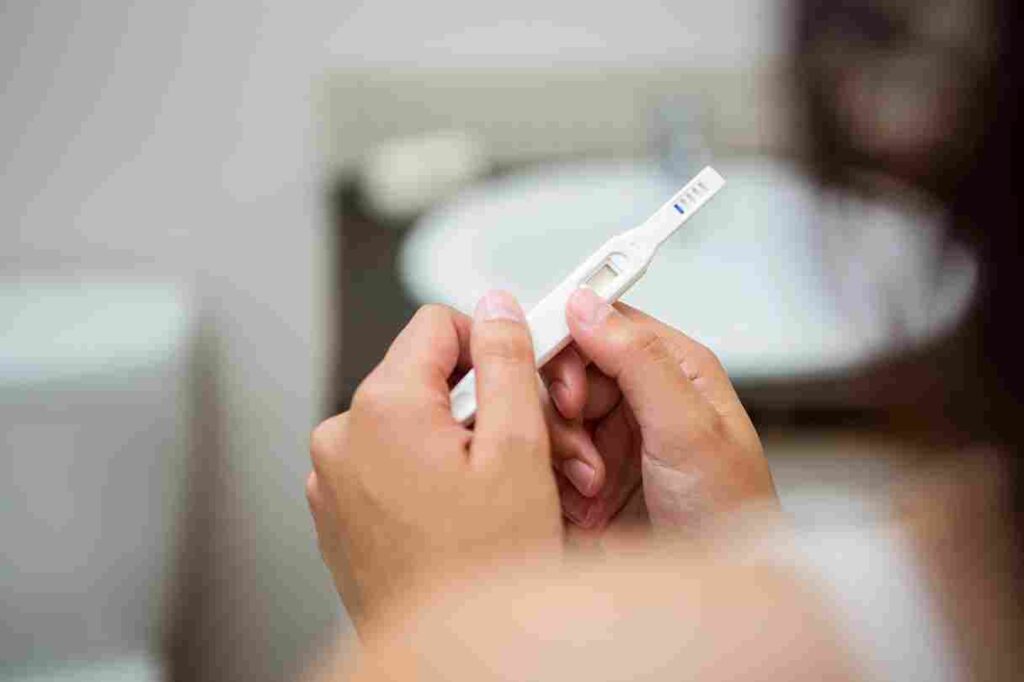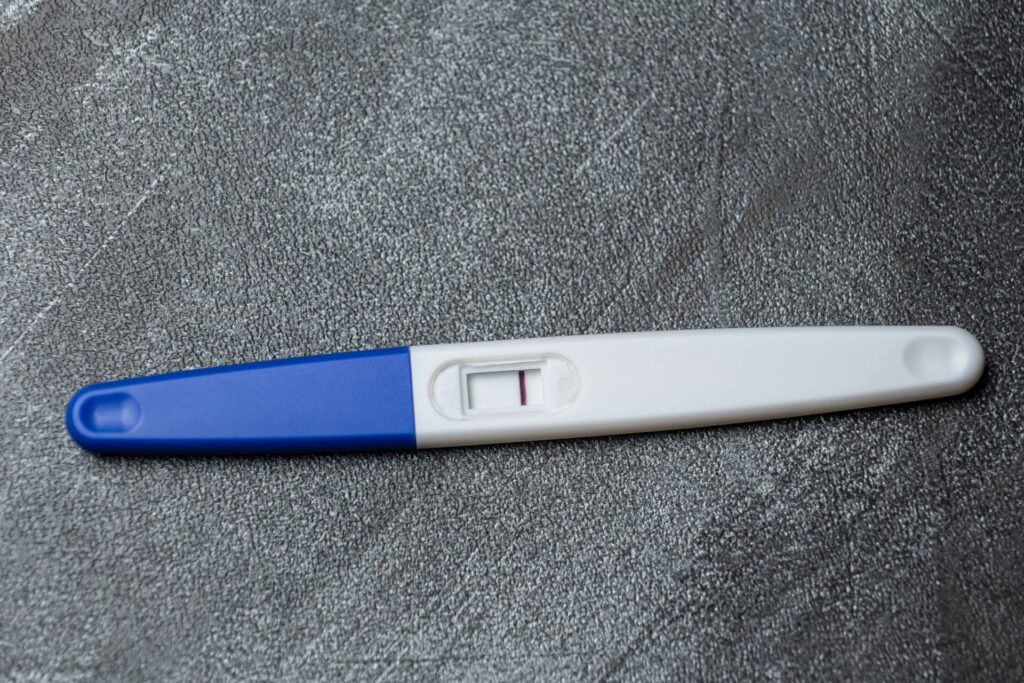Missing a period can cause stress and confusion—especially when you’re trying to conceive or avoid pregnancy. But what happens when you have a missed period with a negative pregnancy test? While pregnancy is a common reason for a missed period, it’s far from the only one. Many women face this scenario and wonder what is happening with their bodies.
In this article, we explore 12 potential causes of a missed period with a negative pregnancy test and offer guidance on when to consult a healthcare provider.
Why You Might Get a Negative Pregnancy Test
Before diving into the causes, let’s briefly understand what a negative pregnancy test means.
A home pregnancy test detects the hormone hCG (human chorionic gonadotropin) in your urine. If levels are too low to detect—even if you are pregnant—you may get a false negative. Testing too early, diluted urine, or an expired test can also lead to a negative pregnancy test result.
12 Causes of Missed Period with Negative Pregnancy Test
1. Stress and Anxiety
High-stress levels can interfere with the hypothalamus—the part of the brain responsible for regulating your menstrual cycle. This can delay or completely stop ovulation, leading to a missed period.
Example: A woman preparing for final exams or going through a breakup may experience hormonal imbalance due to stress, resulting in a missed cycle and a negative pregnancy test.
2. Polycystic Ovary Syndrome (PCOS)
PCOS affects 1 in 10 women of childbearing age and causes hormonal imbalances that lead to irregular or missed periods. Even though you’re not pregnant, your body may not be ovulating properly, which can give you a negative pregnancy test.
Symptoms include:
- Irregular periods
- Excess facial hair
- Weight gain
- Acne
3. Thyroid Disorders
Both hyperthyroidism and hypothyroidism can cause missed periods. Thyroid hormones control your menstrual cycle, and if they’re not balanced, your periods can be affected.
Common signs:
- Fatigue
- Weight changes
- Hair thinning
- Mood swings
Thyroid disorders may cause you to miss a period, even with a negative pregnancy test.

4. Recent Weight Changes
Sudden weight gain or loss can throw off your hormonal balance. Fat cells produce estrogen, and excessive or insufficient levels of it can impact ovulation.
Example: Starting a new diet or exercise regime could result in a missed period and a negative pregnancy test, even though you’re not pregnant.
5. Intense Physical Exercise
Overtraining or extreme physical exertion can cause your body to prioritize energy for survival over reproduction. Athletes often experience missed periods, known as exercise-induced amenorrhea.
If you’re seeing a negative pregnancy test and train hard regularly, this might be the reason.
6. Birth Control Withdrawal
This change in hormones can cause you to miss your period and get a negative pregnancy test, as your ovulation may become irregular for a while. This hormonal shift can lead to a missed period and a negative pregnancy test as ovulation resumes irregularly.
7. Breastfeeding
During breastfeeding, the hormone prolactin is elevated, which can suppress ovulation. This results in irregular or absent periods.
You might see a missed period with a negative pregnancy test if you’re nursing frequently, especially during the first 6 months postpartum.
8. Perimenopause
As women approach menopause (typically in their 40s), menstrual cycles become irregular. You may experience a skipped period and still have a negative pregnancy test, which is entirely normal during this phase.
Symptoms of perimenopause:
- Hot flashes
- Night sweats
- Mood changes
- Vaginal dryness
9. Medications and Medical Conditions
Certain medications—like antipsychotics, chemotherapy, or antidepressants—can impact your menstrual cycle. So can conditions like diabetes or celiac disease.
Always read medication side effects if you’re experiencing a missed period and a negative pregnancy test.

10. Ectopic Pregnancy
Although rare, an ectopic pregnancy can sometimes produce a negative pregnancy test early on. In this condition, the fertilized egg implants outside the uterus, usually in the fallopian tube.
Warning signs:
- Sharp abdominal pain
- Vaginal bleeding
- Dizziness
Seek emergency medical attention if you suspect this condition.
11. Low hCG Levels
Some women produce hCG more slowly than others. If you test too early, there may not be enough hormones for the test to detect, resulting in a negative pregnancy test despite being pregnant.
Pro Tip: Retest a few days later or consult your doctor for a blood test for more accurate results.
12. Faulty or Expired Pregnancy Test
A false negative pregnancy test can occur if the test is expired or improperly stored. Always check the expiration date and follow instructions carefully.
Tip: Use the first urine of the day when hCG levels are most concentrated.
When Should You See a Doctor?
If your period is more than a week late and you’re consistently getting a negative pregnancy test, it’s time to consult a healthcare professional. They may perform:
- Blood hCG test
- Ultrasound
- Hormonal profile
- Thyroid and glucose testing
At The Boon IVF, Hyderabad’s leading fertility centre, we understand the anxiety that comes with missed periods and confusing pregnancy test results. Our experienced team focuses on understanding and treating reproductive health issues with care and accuracy. Whether you’re seeking clarity, fertility guidance or personalized treatment, The Boon IVF is here to support you every step of the way.
Conclusion
A missed period with a negative pregnancy test can be confusing—but it’s not always cause for alarm. From stress to hormonal imbalances and medical conditions, numerous factors can cause your cycle to be delayed. If you’ve ruled out pregnancy and continue to miss periods, it’s essential to seek medical advice to uncover the root cause.
By knowing why you got a negative pregnancy test, you can take the right steps to take care of your reproductive health.


